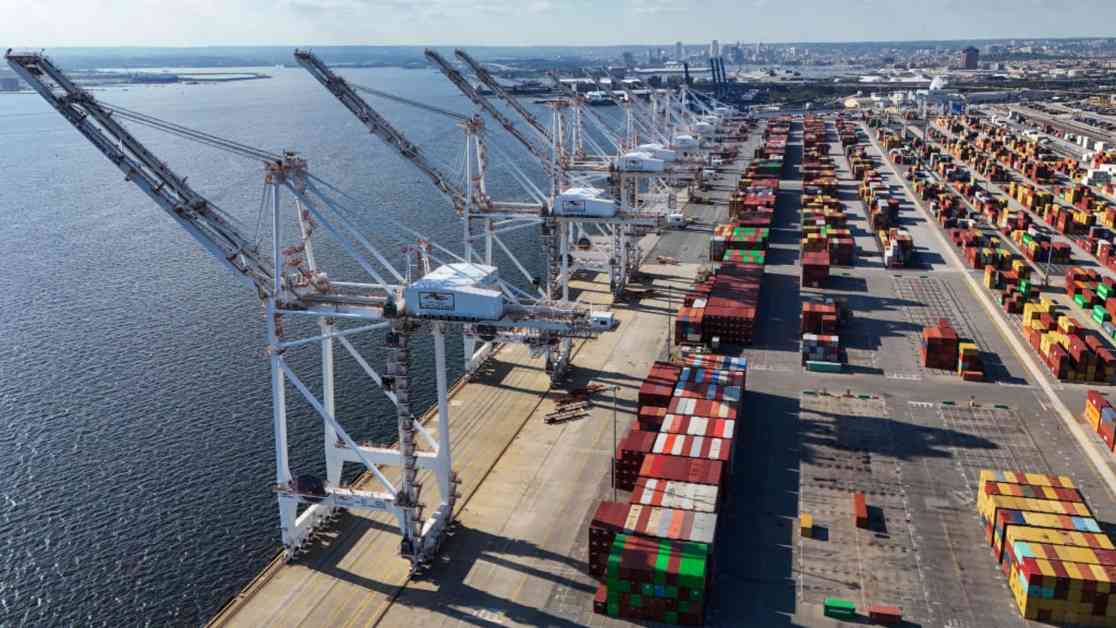Port Workers Reach Tentative Deal on Wages and Contract Extension
A tentative deal has been reached between a major union for U.S. dockworkers and the United States Maritime Alliance on wages, leading to an extension of their existing contract through Jan. 15. This agreement comes after a strike that had been causing disruptions at East Coast and Gulf Coast ports since the beginning of the week, posing a threat to the supply of various goods in the U.S.
The International Longshoremen’s Association and the United States Maritime Alliance, Ltd. announced the tentative agreement on wages and the extension of the Master Contract in a joint statement. This move allows for further negotiations to address any remaining issues before the new contract is finalized by January 15, 2025.
Throughout the week, the strike had been creating challenges within the U.S. supply chain. Misplaced containers and delayed operations at ports had led to significant disruptions, with billions of dollars worth of goods sitting offshore. The resulting chaos had also contributed to rising shipping costs, impacting various industries.
This strike marked the first time the ILA had taken such action since 1977, affecting operations at 14 different ports and involving approximately 50,000 out of the union’s 85,000 members. ILA President Harold Daggett had previously stated the union’s request for a $5 per hour increase over each year of the proposed six-year contract.
Under the terms of the tentative agreement, ILA wages are set to rise by 61.5% over the span of six years, according to sources familiar with the matter. Despite this progress, negotiations surrounding the issue of port automation are still ongoing as both parties work towards a comprehensive resolution.
The resolution of this labor dispute is a significant step towards restoring normalcy at the affected ports and ensuring the smooth flow of goods through the supply chain. With the extension of the contract, both the workers and the management have additional time to address any remaining concerns and finalize a mutually beneficial agreement that supports the interests of all stakeholders involved.
















